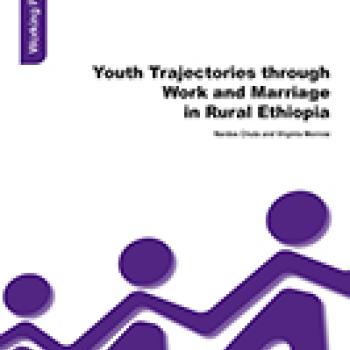
The paper explores young people's trajectories through work and marriage in two rural communities in Ethiopia. Global policy attention and research has been dominated by the patterns found in high-income country contexts. Although there is increasing focus on 'adolescence' in low-income countries, the concept of 'transition' has been critiqued as inadequate. The paper explores the trajectories of young people who are no longer in formal schooling, through their involvement in work/livelihoods and marriage. It draws on Young Lives survey and qualitative longitudinal data. The paper suggests that transitions in Ethiopia do not occur in a neat fashion and that education and early marriage are less linked to the linearity of transitions experienced by young people in Ethiopia. Thus, it is advisable to consider contexts that support the transitions of young people while designing policies and programmes.

The paper explores young people's trajectories through work and marriage in two rural communities in Ethiopia. Global policy attention and research has been dominated by the patterns found in high-income country contexts. Although there is increasing focus on 'adolescence' in low-income countries, the concept of 'transition' has been critiqued as inadequate. The paper explores the trajectories of young people who are no longer in formal schooling, through their involvement in work/livelihoods and marriage. It draws on Young Lives survey and qualitative longitudinal data. The paper suggests that transitions in Ethiopia do not occur in a neat fashion and that education and early marriage are less linked to the linearity of transitions experienced by young people in Ethiopia. Thus, it is advisable to consider contexts that support the transitions of young people while designing policies and programmes.

